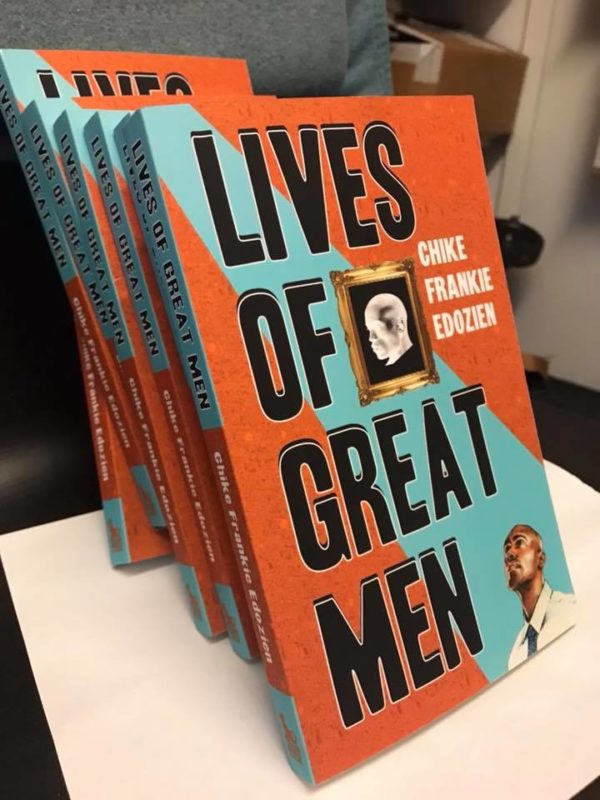
Chike Frankie Edozien, professor of journalism at New York University, has a remarkable book forthcoming. The memoir, titled Lives of Great Men, is 266 pages of what it means to be gay in Nigeria—the very first by a Nigerian about LGBTQ life in Nigeria.
It is a landmark moment, this expansion of the queer oeuvre in Nigerian literature. The first novel by a Nigerian about queer Nigerians came in 2005: Jude Dibia’s Walking with Shadows. The first poetry chapbook by a Nigerian about queer Nigerians came an agonizing eleven years later in 2016: Romeo Oriogun’s Burnt Men, published by Praxis magazine. In 2016, also, we had an anthology of LGBTQ real life struggles in Nigeria, Blessed Body: The Secret Lives of LGBT Nigerian Lesbian, Gay, Bisexual and Transgender, edited by Unoma Azuah. And in 2017, Nigeria’s first LGBTQ literary collective, 14, released a beautiful anthology, We Are Flowers, published by us. The paucity of literature about queer Nigerians prompted our second Anniversary Conversation on Facebook, “Un-Silencing Queer Nigeria: The Language of Emotional Truth,” featuring some of the country’s young, newly notable writers. In this scarcity, Edozien’s memoir carves a path of its own.
Here is a description of Lives of Great Men by its publishers, Team Angelica.
From Victoria Island, Lagos to Brooklyn, U.S.A. to Accra, Ghana to Paris, France; from across the Diaspora to the heart of the African continent, in this memoir Nigerian journalist Chike Frankie Edozien offers a highly personal series of contemporary snapshots of same gender loving Africans, unsung Great Men living their lives, triumphing and finding joy in the face of great adversity. On his travels and sojourns Edozien explores the worsening legal climate for gay men and women on the Continent; the impact homophobic American evangelical pastors are having in many countries, and its toxic intersection with political populism; and experiences the pressures on those living under harshly oppressive laws that are themselves the legacy of colonial rule—pressures that sometimes lead to seeking asylum in the West. Yet he remains hopeful, and this memoir, which is pacy, romantic and funny by turns, is also a love-letter to Africa, above all to Nigeria and the megalopolis that is Lagos.
The elegant cover is designed by John Russell Gordon of Team Angelica, who is also an artist. It is meant to reflect the title: an image of a man gazing up at great achievers.
Lives of Great Men comes with two major blurbs. One by Ethiopian novelist Maaza Mengiste, author of Beneath the Lion’s Gaze:
Frankie Edozien’s Lives of Great Men is an incredibly powerful portrayal of what it means to be a gay Nigerian man. But what makes this book so outstanding is its tender and insightful exploration of all the complicated, unspoken bonds in our most intimate relationships. In prose that is at once engaging and inquisitive, Edozien holds the human heart to light and finds the ways it manages to survive despite it all.
The second by Chris Abani:
Frankie Edozien writes with an urgency that is compelling, with a vulnerable honesty that is disarming and impressive, and with elegance about his life and a subject so risky and yet necessary. This is not a memoir of coming out gay in Nigeria as much as it is a call to step into our humanity. A necessary and courageous book.
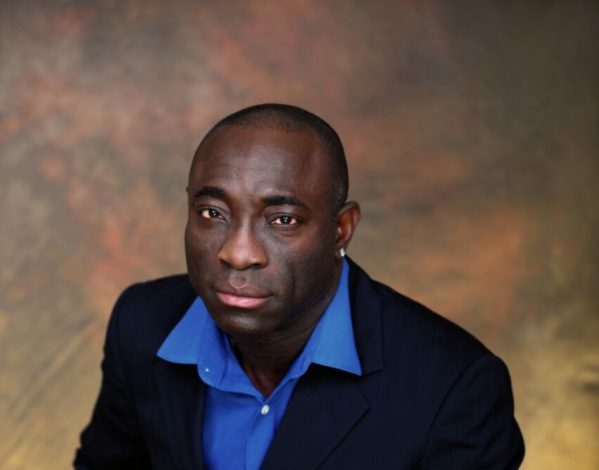
The memoir has also drawn praise from Somali-British writer and visual artist Diriye Osman, author of the Polaris Award-winning story collection, Fairytales for Lost Children. Describing it as “a tenderly constructed cloth” in Huffington Post, he hails Edozien’s ability “to create tableaux and scenes that sing.”
He focuses his pinpoint-sharp lens not only on his own experiences of being a gay Nigerian man, but embeds a very specific generosity of spirit and wisdom in his documentation of his same-gender loving African brothers across the continent and the Diaspora. Their greatness is derived from their fortitude, and it’s heartening to come across a book where marginalized members of a given community are being honoured with such tenderness and graça.
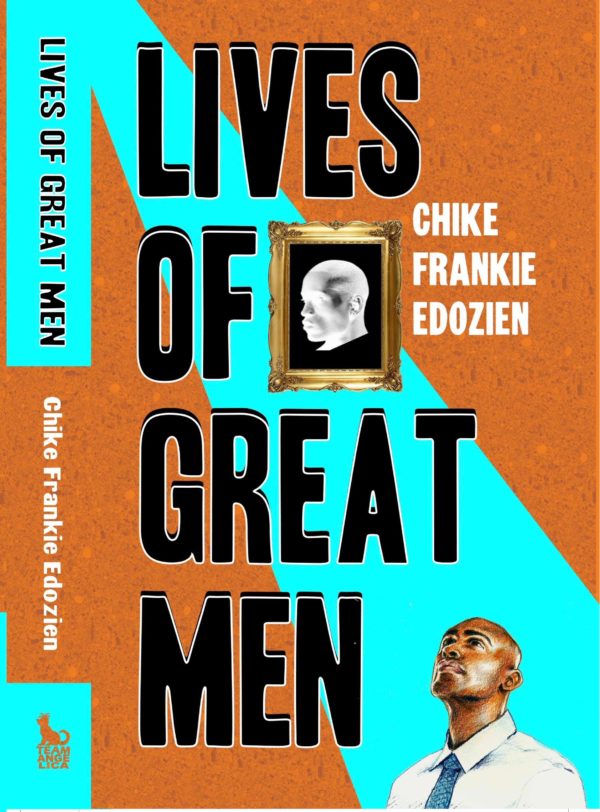
Through email, we got in contact with Edozien to learn the story behind the book.
A series of things pushed me to do this book. Back in 2011 I wrote a piece for colorlines that explored how Ghana’s gay community that had been left alone for eons had faced a serious backlash and gay bashing as a result of what seemed like a sudden evangelical fervour that was anti anything that didn’t fit in their norms of ‘tradition’.The following year I started to see the same kind of fervour take over public policy and I noticed how friends of mine or people I was meeting were fleeing their countries and seeking asslyum due to a smothering wave of anti gay sentiments. I noticed even more how men and women of timber and caliber, as one would say, would give up careers and head to other countries to make them better. It saddened me because some of these folks were super talented and weren’t seeking asylum but were at the top of their fields. They turned to the West and Asia who mined their talents for the good of their own countries and Nigeria and other African countries were left out of their expertise. Sadly this brain drain is hard to be stopped if public policy by say, our Nigerian government, says people have to be criminalized just because they are different.
It was also important for me to document the struggle and experience of loads of people I know who have entered into heterosexual marriages as a means to have peace. As a means to get promoted, as a means to simply stop the being ostracized but social and family groups just because they dare to expose their hearts.
And it is an important job that he has done.
The memoir will be launched on 23 November in London and on 30 November at New York University’s Africa House.
Congratulations to Chike Frankie Edozien.
Buy Lives of Great Men HERE.


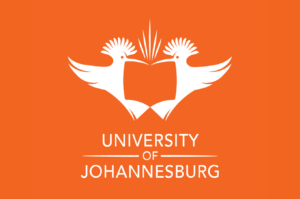



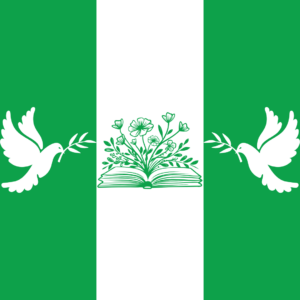


Capturing an Africa struggling with a Western import: Homophobia - Airiters February 03, 2018 08:05
[…] as an African Gay Man“ by Nigerian journalist Chike Frankie Edozien appears to the first memoir about LGBT life in Nigeria. But the book isn’t just a personal account of Edozien’s experiences of being […]